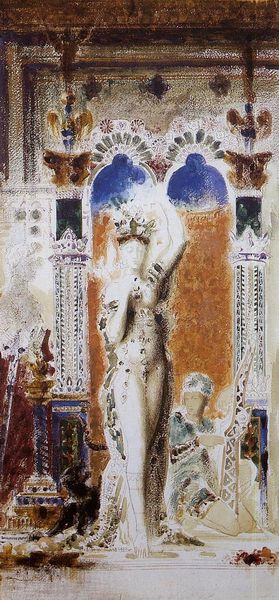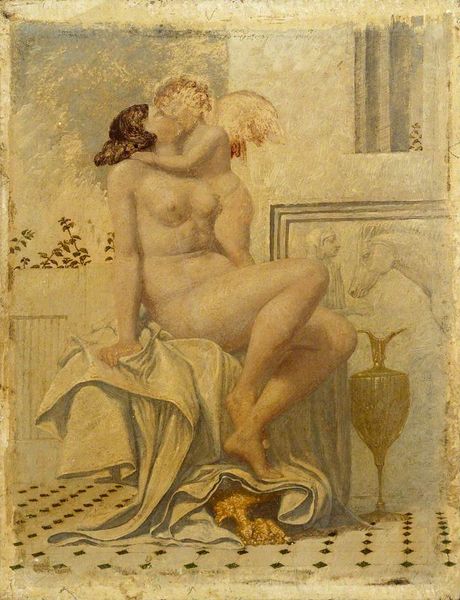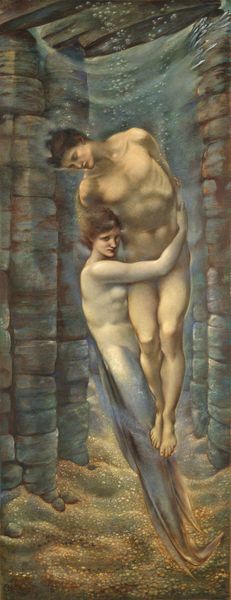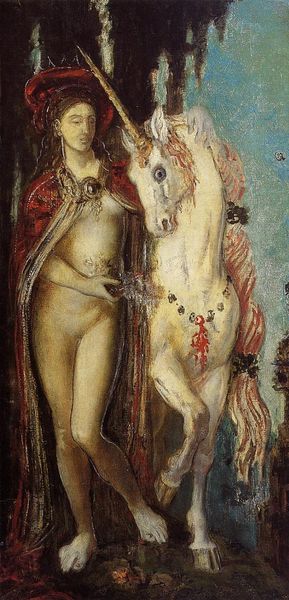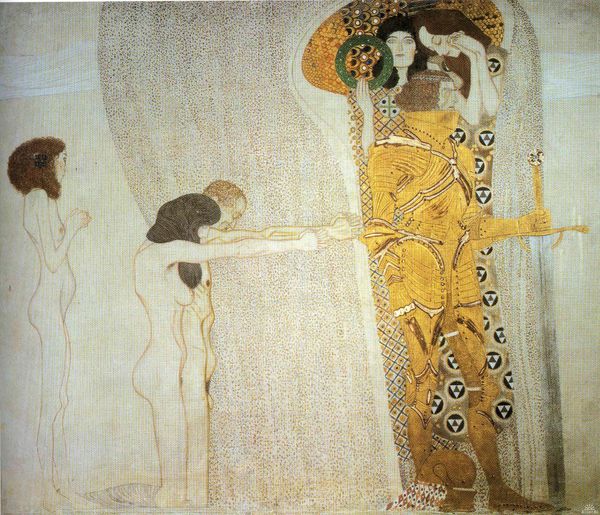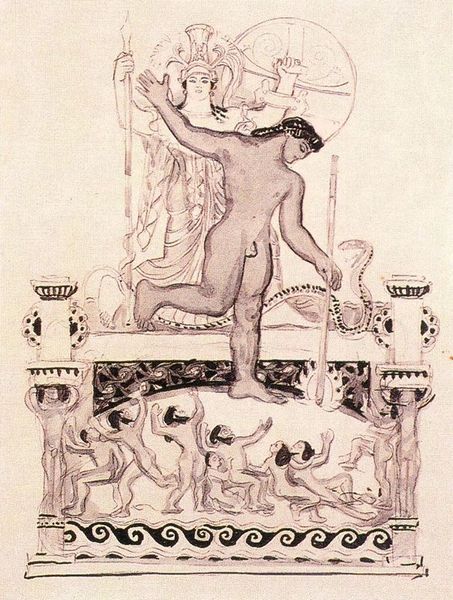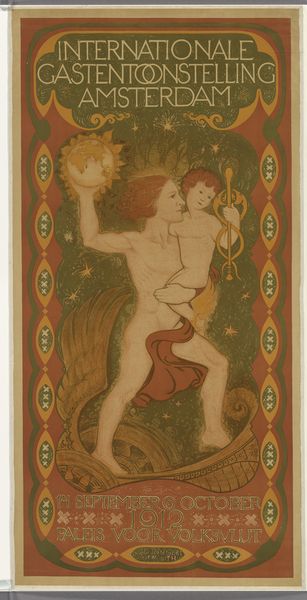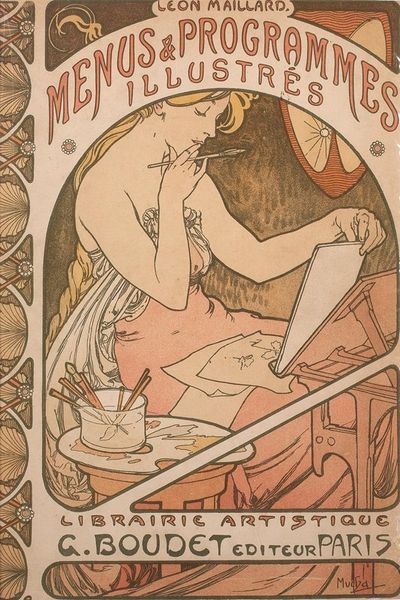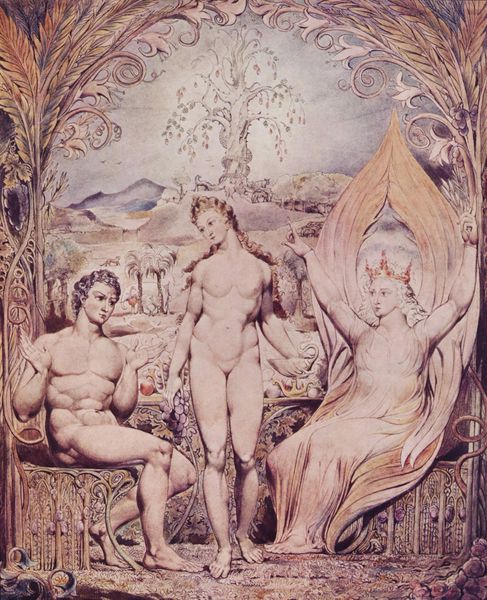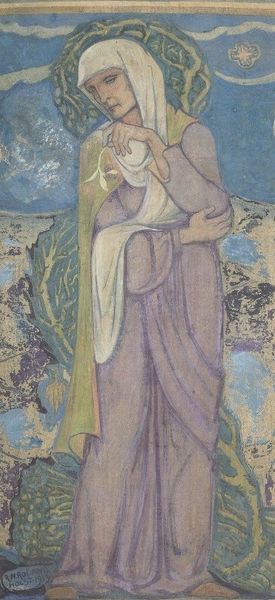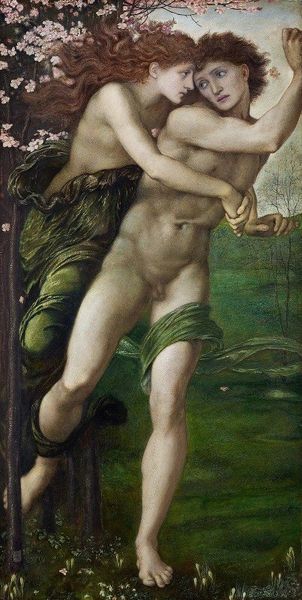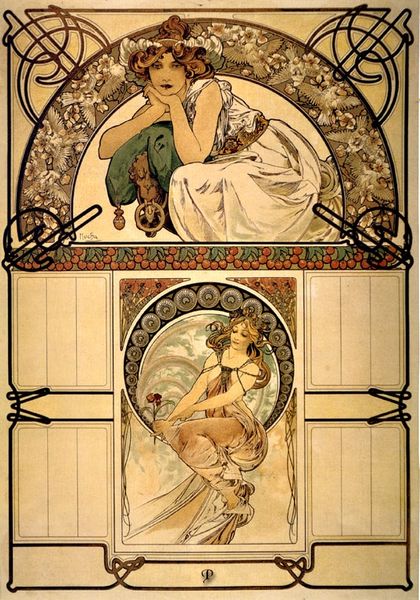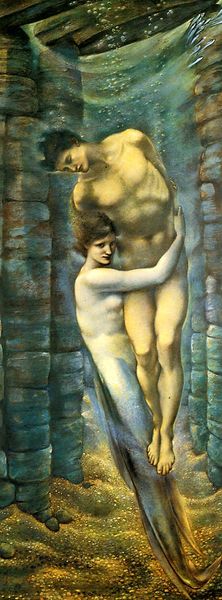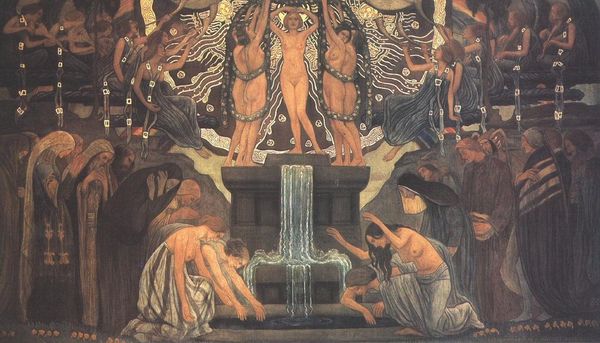
painting, oil-paint
#
portrait
#
art-nouveau
#
abstract painting
#
painting
#
oil-paint
#
figuration
#
oil painting
#
intimism
#
symbolism
#
nude
Copyright: Public domain
Editor: This is a detail from Gustav Klimt's "Beethoven Frieze," created in 1902, using oil paint and gold leaf. The embracing figures feel monumental and dreamlike. What stands out to you in terms of how it's made? Curator: Well, I'm drawn to the opulence achieved through Klimt's employment of gold leaf, of course. This isn't mere decoration. Consider the labor involved in applying it, and how that connects with the ideals he depicts: joy and unity. He is, after all, commenting on Beethoven's Ninth Symphony. It makes me think about who has access to these materials and what that means for the messages he tries to send. Don't you think so? Editor: That’s interesting – I hadn't considered the implications of the gold so deeply, more its visual effect, really. So, you're suggesting the value of the material adds a layer of meaning to the overall message of the work, relating it to labor and perhaps even class? Curator: Exactly! The gold isn't just aesthetically pleasing; it's a deliberate material choice that invites questions. Consider the process of acquiring, preparing, and applying it within the context of turn-of-the-century Vienna. How does the material world reflect the emotional content Klimt presents? It really complicates what is happening. Editor: That gives me a lot to think about. It moves beyond just *seeing* the image to understanding its creation and implications. Curator: Precisely! We are encouraged to move beyond the image, examining its production and material existence in society. It is a much richer interpretation.
Comments
No comments
Be the first to comment and join the conversation on the ultimate creative platform.
